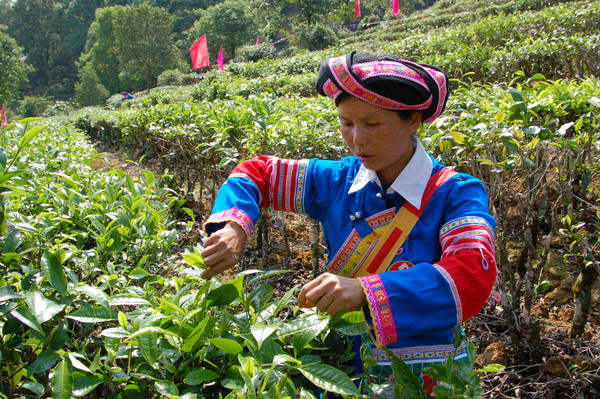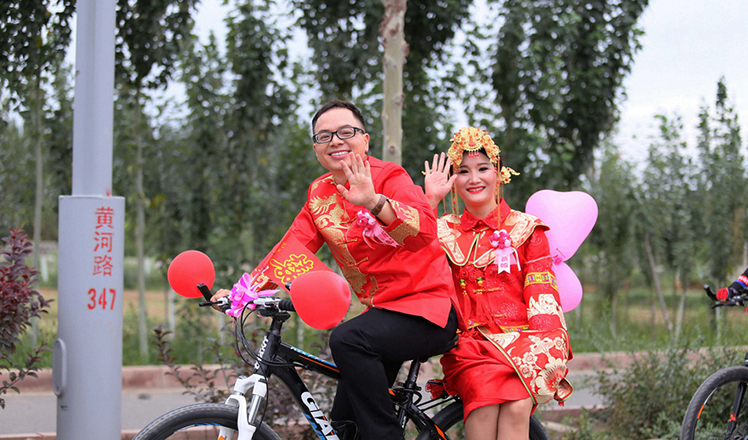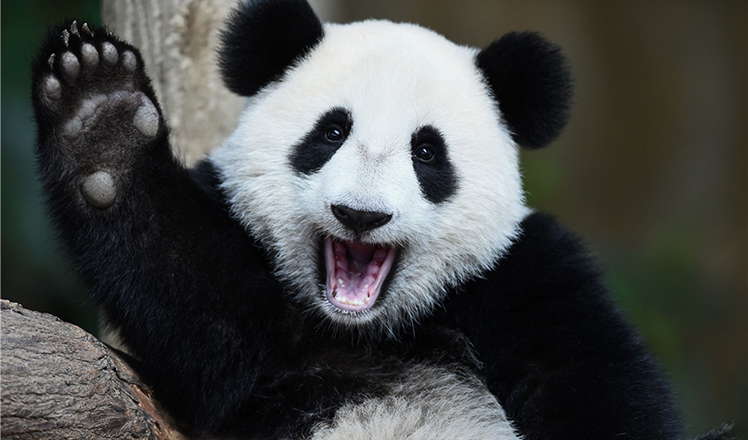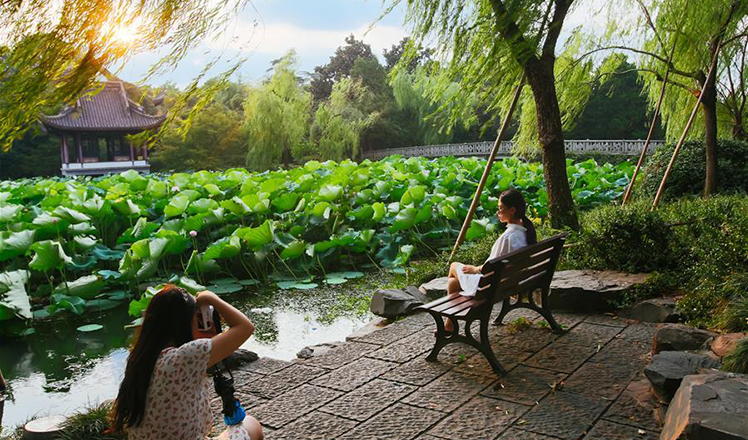Brewing up an international brand
Updated: 2013-01-14 09:59
By Xie Yu and Guo Anfei in Pu'er(China Daily)
|
||||||||
Zhang Baosan, president of the Yunnan Pu'er Tea Trade Association, said many people find that the taste, fragrance and health benefits of Pu'er get better after it matures.
"Pu'er tea used to be matured naturally while being transported on horseback from Yunnan to Tibet," Zhang said. "But now that maturing process can be controlled and standardized."
Pu'er is a big-leaf tea produced in Yunnan, especially in the Pu'er, Lincang, and Xishuangbanna areas. Records show it was drunk as long ago as the Eastern Han Dynasty (AD 25-220). The tea is commonly packaged as a cake, brick or lump, to make storing and transportation convenient.
|
 A Yi ethnic woman working at a Pu'er tea farm. Pu'er is a big-leaf tea produced in Yunnan, especially in the Pu'er, Lincang, and Xishuangbanna areas. Records show it was drunk as long ago as the Eastern Han Dynasty (AD 25-220). The tea is commonly packaged as a cake, brick or lump, to make storing and transportation convenient. [Photo / China Daily] |
The price of Pu'er tea leaves, which were given as a tribute to the imperial court during the Qing Dynasty (1644-1911), rose more than 500 yuan ($80.26) a kilogram on average, having been 20 yuan a kg in 2007. It has since fallen back.
One day you could exchange a pack of tea leaves at the market for a motorcycle then the next day it was worth nothing. That's how the market fluctuated, Liu said.
"After that we realized it won't help if we just improve output because it is not the quantity that decides the price but the quality," he added.
Almost half of the tea trees were grubbed up to give more space and nutrients to those saved.
"We reviewed the ancient planting methods and conducted experiments to find the optimal space between two trees and then persuaded the tea planters to adjust their over-densely planted tea gardens," Liu said.
Meanwhile, the Pu'er authority set up 646 special stores selling quality fertilizers and pesticides to ensure that all the tea leaves harvested in their region are free from any chemicals or pesticide residues that may harm health.
In some tea gardens, green manure has been introduced to replace common fertilizer.
"Ecological planting has helped to produce organic teas, which is a must if we want to increase exports or cooperate with giant companies such as Tasly," said Liu.
Previous reports
Enterprises actively promoting skills in overseas markets
A remedy for the US healthcare system
Tempest over tea: What is the true Puer?
- Erdogan says Turkey to fight IS, Syrian Kurdish militants
- ROK's ruling party offers to deploy nuclear-power submarine
- In photos: Searching for history along the Thames
- Bolivian deputy interior minister killed by miners: report
- In photos: Great Dorset Steam Fair 2016
- Historical towns before and after Italy's earthquake

 Groom and bride cycle their way to wedding
Groom and bride cycle their way to wedding
 The world in photos: Aug 22- Aug 28
The world in photos: Aug 22- Aug 28
 Daily life in Hangzhou, host city of 11th G20 summit
Daily life in Hangzhou, host city of 11th G20 summit
 Young pastry cook creates dough sculptures in China
Young pastry cook creates dough sculptures in China
 World's top 10 largest banks by assets
World's top 10 largest banks by assets
 Sand sculptures to welcome the G20 Summit
Sand sculptures to welcome the G20 Summit
 Historical towns before and after Italy's earthquake
Historical towns before and after Italy's earthquake
 College prepares 300 sleeping mats for parents
College prepares 300 sleeping mats for parents
Most Viewed
Editor's Picks

|

|

|

|

|

|
Today's Top News
Trump outlines anti-terror plan, proposing extreme vetting for immigrants
Phelps puts spotlight on cupping
US launches airstrikes against IS targets in Libya's Sirte
Ministry slams US-Korean THAAD deployment
Two police officers shot at protest in Dallas
Abe's blame game reveals his policies failing to get results
Ending wildlife trafficking must be policy priority in Asia
Effects of supply-side reform take time to be seen
US Weekly

|

|







